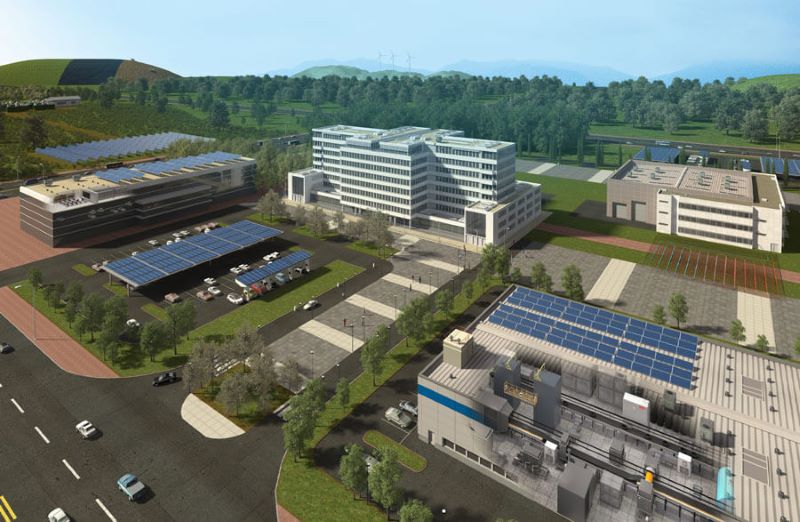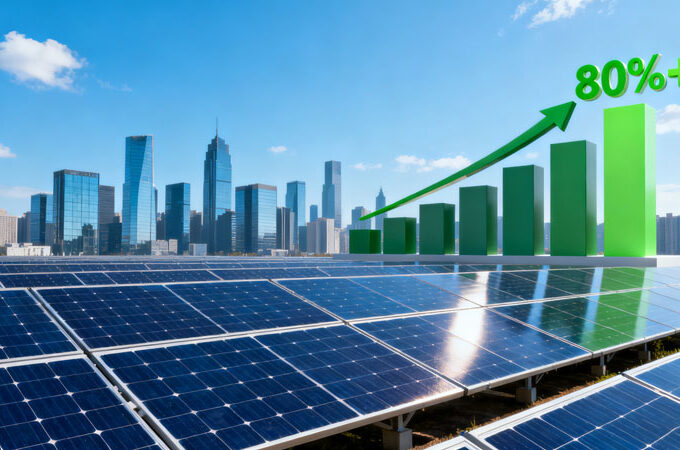In the quest for a sustainable future, businesses and property owners are increasingly turning to clean energy solutions. These technologies not only reduce carbon footprints but also demonstrate a commitment to environmental stewardship. Among the various clean energy options available, six stand out for their efficiency and effectiveness: roof-mounted solar, ground-mounted solar, solar parking canopies, electric vehicle (EV) charging stations, fuel cells, and energy storage systems. Each of these solutions offers unique benefits and can be tailored to meet the specific needs of different clients.
Roof-mounted solar

Roof-mounted solar systems are perhaps the most well-known and widely adopted solar solution. By installing solar panels on rooftops, property owners can directly oversee their power-generating assets. This onsite solar solution not only reduces reliance on traditional energy sources but also visually showcases a commitment to sustainability. Roof-mounted solar systems utilize existing space, making them a practical and efficient option for many businesses and residential properties.
Ground-mounted solar (on or offsite)

Ground-mounted solar arrays provide a versatile solution for generating clean energy. These systems can be installed directly on a property or offsite, depending on space availability and client preferences. Ground-mounted solar does not interfere with existing infrastructure, making it an ideal choice for properties with limited roof space or for those seeking to maximize energy production. This option allows clients to benefit from renewable energy without significant alterations to their current facilities.
Solar parking canopy

Solar parking canopies are an innovative way to optimize space while producing clean energy. By installing solar panels above parking lots, businesses can generate electricity and provide shade and protection for vehicles. Solar canopies are particularly advantageous in urban areas where space is at a premium. This dual-purpose solution enhances the utility of parking areas and contributes to the overall sustainability of the property.
Electric vehicle (EV) charging station

The rise of electric vehicles has created a growing need for EV charging infrastructure. Installing EV charging stations not only accommodates electric car-driving customers but also positions businesses as leaders in the energy transition. These stations can attract environmentally conscious consumers and employees, enhancing the company’s green image and supporting the broader adoption of electric vehicles.
Fuel cells

Fuel cells offer an alternative to solar and wind energy by harnessing the chemical energy of hydrogen or other fuels to produce electricity cleanly and efficiently. Fuel cells are a versatile and reliable energy source, capable of providing power in various settings. They are particularly valuable in situations where solar and wind energy may not be feasible or sufficient. By incorporating fuel cells, businesses can diversify their renewable energy portfolio and ensure a consistent power supply.
Energy storage

Energy storage systems are crucial for maximizing the benefits of renewable energy. These systems capture and store excess energy produced by solar panels or other renewable sources, allowing clients to tap into clean energy after sundown or on cloudy days. Energy storage enhances the reliability and stability of renewable energy systems, ensuring that businesses can meet their energy needs even when production fluctuates. This technology is essential for creating a resilient and self-sufficient energy infrastructure.
Conclusion
Adopting clean energy solutions is not only an environmental imperative but also a strategic business decision. Roof-mounted solar, ground-mounted solar, solar parking canopies, EV charging stations, fuel cells, and energy storage systems each offer distinct advantages that can be tailored to meet the unique needs of different clients. By investing in these technologies, businesses can reduce their carbon footprint, lower energy costs, and demonstrate a strong commitment to sustainability. The transition to clean energy is a crucial step towards a greener, more sustainable future for all.












